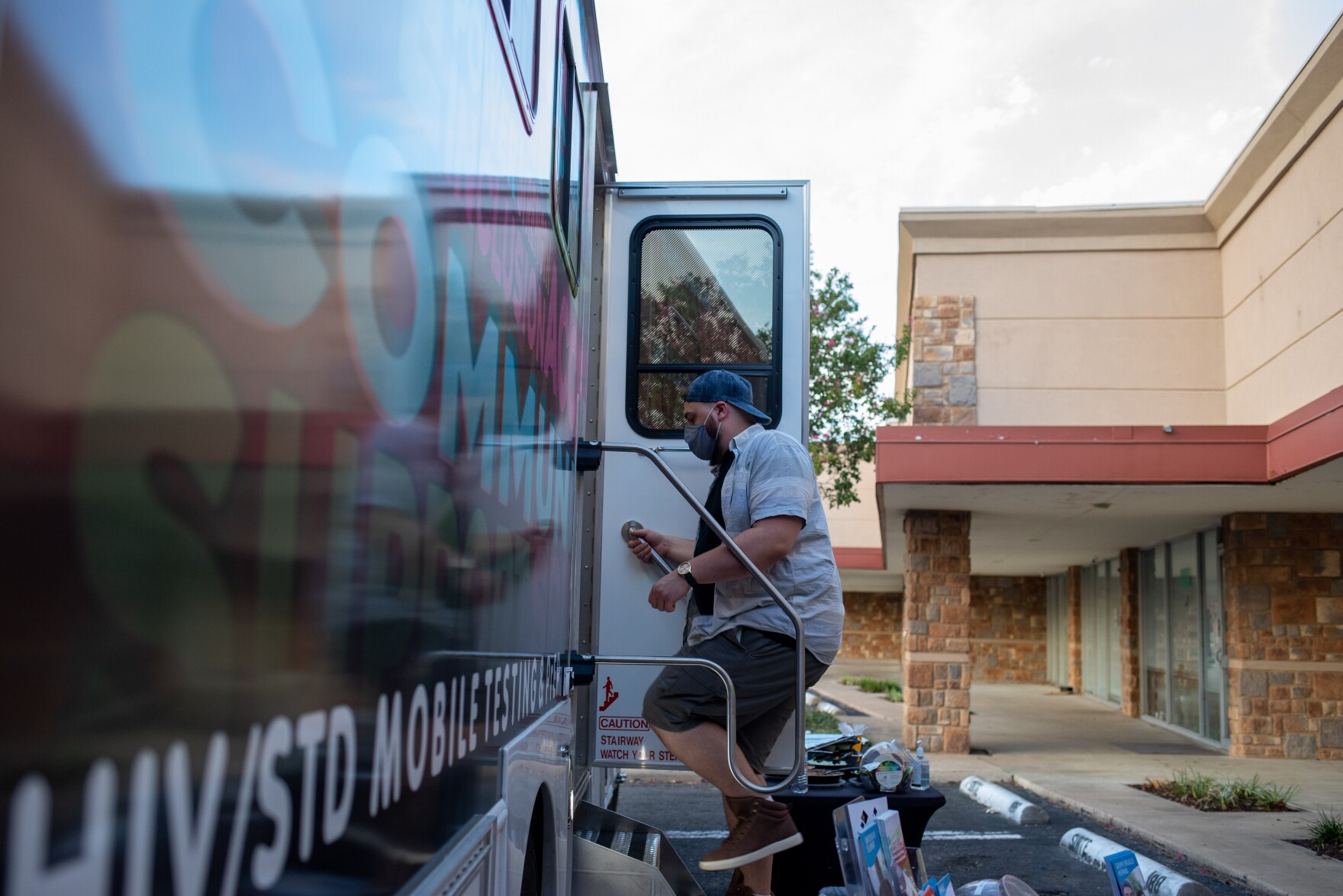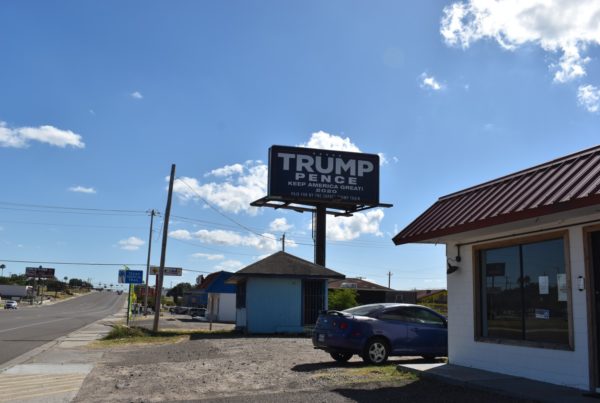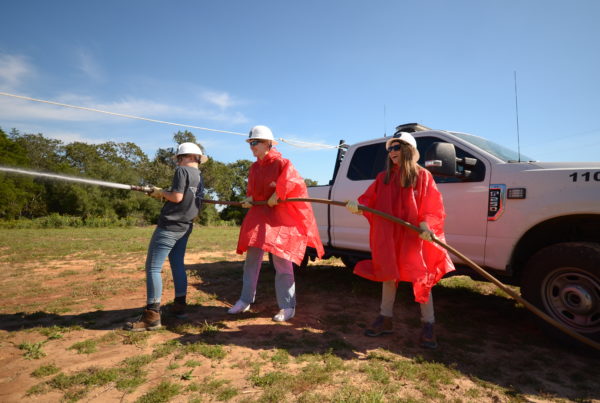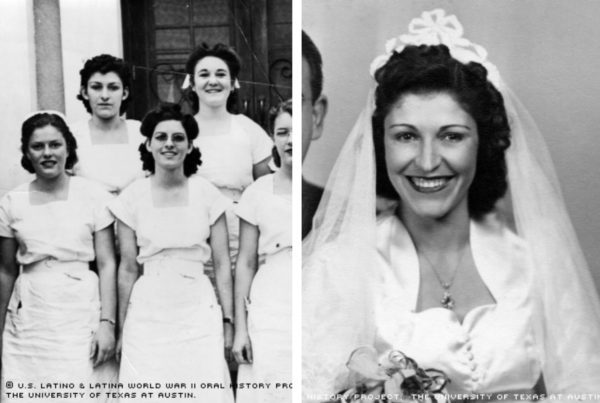A Dallas-based LGBTQ organization is bringing HIV testing directly to local neighborhoods. Resource Center launched a mobile health unit this fall, traveling around Dallas County to screen for HIV and sexually transmitted infections (STIs). The center’s aim is to make conversations about sexual wellness more routine, and that starts with how the mobile unit looks and feels.
Staffers named the unit Sexy Health. It is the size of a large RV. Alberto Mendez, the Latinx outreach and testing coordinator, said most people notice right away how colorful the van is.
“People usually wonder what is that? What do they have?” Mendez said. “Is it a food truck, is it free stuff? People are always just wanting to know.”
On launch night, the unit was parked in front of Resource Center’s MPowerment building, where people cycled in and out for events. Between the cars rushing past on the highway, and the loud engine hums to power the mobile unit, Mendez helped people sign up for testing slots.
One at a time, people climbed the small set of stairs to get their blood drawn for an HIV or STI test. Each appointment took about 15 minutes to complete.
The mobile unit aims to be more comfortable, less clinical
Mendez said he sees this work as a continuation of what the organization is doing at the brick-and-mortar health center, named Nelson-Tebedo.
“It gives us an extended arm to reach out to more people and to more communities,” Mendez said. “In essence, not everyone can make it to our centers or to our locations, and so for us to be able to reach out to them is definitely a plus.”
Robin Pocahontas Crowe was one of the people who got tested on the first night. She’s the founder of House of Rebirth, a community support and housing network for Black trans women in Dallas.
“It was spacious. It almost felt like you were walking into a facility instead of a van,” Crowe said. “It wasn’t needles everywhere and things falling off the wall and stuff like that. It really was clean.”
Resource Center knows there’s a need for more accessible testing and education, especially with HIV. Since 2018, the Centers for Disease Control and Prevention reports the highest rates of new HIV diagnoses were mainly in the southern U.S. The most recent data stated that from 2008 to 2017, the number of people living with HIV in Dallas County went up 44%. HIV disproportionately affects Black and Latino people.
Building trust helps break down fears about sexual wellness testing
But with all those statistics, program director Jalenzski Brown wants to focus on joy. He helped coordinate the launch of the mobile unit. He said he wants to make a space where people can feel open about their sexual health.
“People don’t tend to articulate everything that’s going on. They articulate what they think is safe, what’s going to be palatable for whoever they’re talking to,” Brown said. “Here we try to create an environment where we get you to let your guard down. We’re not here to judge you. We’re here to assist you in reaching your optimal health.”
Beyond testing, the mobile unit has sexual wellness information, condoms and PrEP — a prevention medication for people who’ve been exposed to HIV. There are also people available to help folks get connected with other services, like gender affirming care and community groups.
Brown said everything working together is the way the organization is tackling community health.
“Sex is happening, so let’s not pretend like it’s not happening,” Brown said. “Let’s deal in reality and ensure we’re coming up with practical plans to address HIV.”
Crowe said the staff and the whole experience put her at ease.
“I think anytime anybody gets tested you’re a little nervous—it’s always that ‘what if’—especially if you’re high-risk like myself,” Crowe said. “I’m African American and trans, and I am sexually active. Even though I use protection, it’s still high risk because of the type of guys I have sex with. I was a little nervous, but [the test] came back negative, so I’m good!”
Organizations and groups can schedule the Sexy Health mobile unit for events, and Brown said the staff is preparing for events all over North Texas in the coming months. His hope is the mobile unit contributes to the state and federal goal of ending the HIV epidemic by 2030.
Got a tip? Email Elena Rivera at erivera@kera.org. You can follow Elena on Twitter @elenaiswriting.














